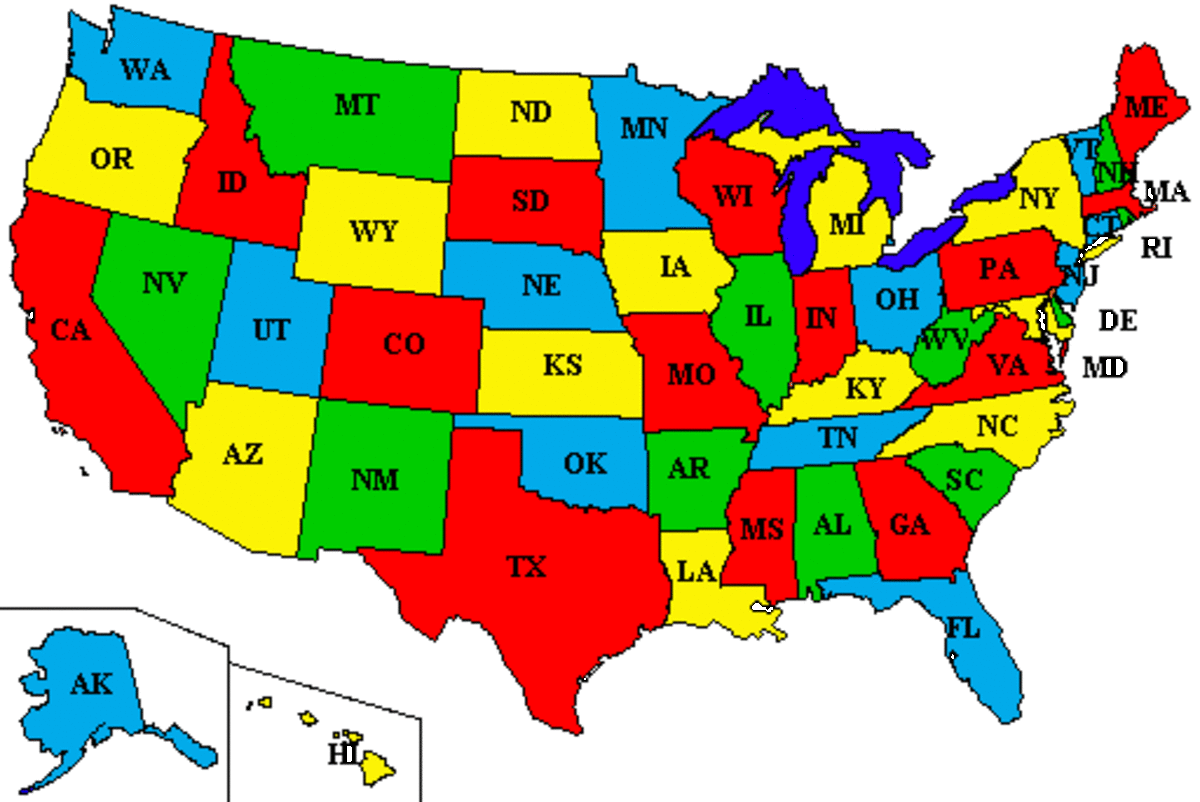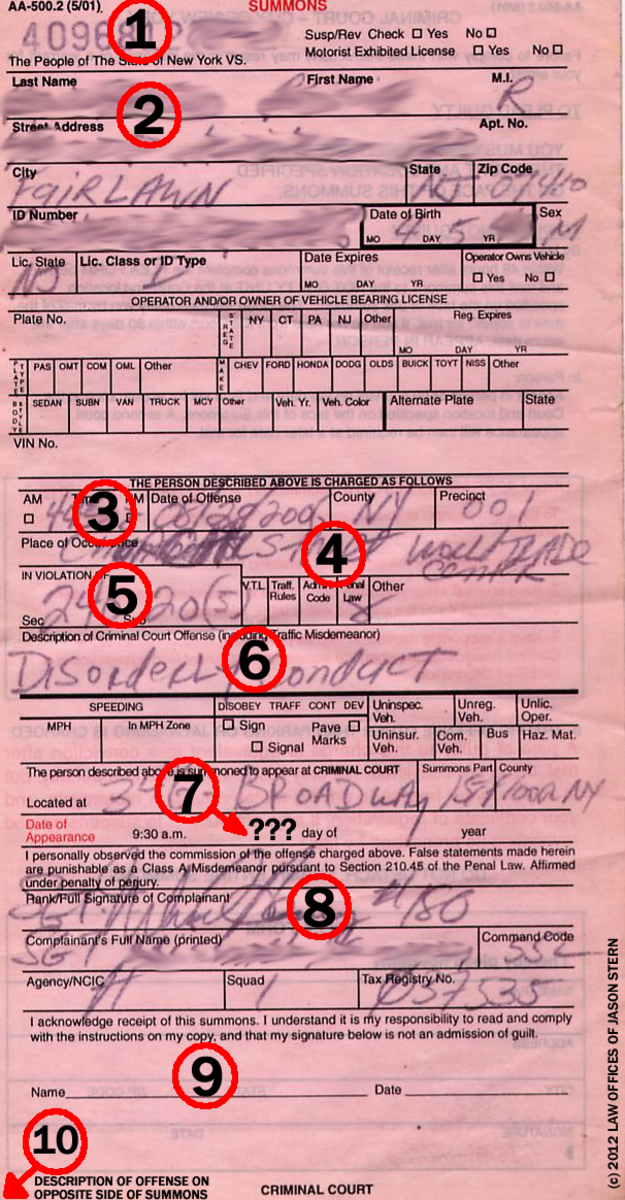State Jurisdiction
Meaning of State Jurisdiction
Jurisdiction is the government’s general power to exercise authority over all persons and entities within its territory.
The term ‘jurisdiction’ refers to the power of States to subject persons or property to their laws, judicial institutions, or enforcement capacity.
Jurisdiction is a vital and indeed central feature of state sovereignty, for it is an exercise of authority which may alter or create or terminate legal relationships and obligations. It may be achieved by means of legislative action or by executive action or by judicial action.
In the UK, Parliament passes binding statutes, the courts make binding decisions and the administrative machinery of government has the power and jurisdiction (or legal authority) to enforce the rules of law. These differences, particularly between the capacity to make law (the prescriptive jurisdiction) and the capacity to ensure compliance with such law (the enforcement jurisdiction), are basic to an understanding of the legal competence of a state.
To give an instance, if a man kills somebody in Britain and then manages to reach the Netherlands, the British courts have jurisdiction to try him, but they cannot enforce it by sending officers to the Netherlands to apprehend him. They must apply to the Dutch authorities for his arrest and dispatch to Britain. If, on the other hand, the murderer remains in Britain then he may be arrested and tried there, even if it becomes apparent that he is a German national.
Thus, while prescriptive jurisdiction (or the competence to make law) may be exercised as regards events happening within the territorial limits irrespective of whether or not the actors are nationals, enforcement jurisdiction is another matter entirely and is essentially restricted to the presence of the suspect in the territorial limits.
While jurisdiction is closely linked with territory it is not exclusively so tied. Many states have jurisdiction to try offences that have taken place outside their territory. And in addition certain persons, property and situations are immune from the territorial jurisdiction in spite of being situated or taking place there. Diplomats, for example, have extensive immunity from the laws of the country in which they are working and various sovereign acts by states may not be questioned or overturned in the courts of a foreign country.
Types of State Jurisdiction
1. Legislative Jurisdiction.
2. Executive Jurisdiction.
3. Judicial Jurisdiction.
1. Legislative Jurisdiction
It is a power of state to make laws. A State has the supremacy to make binding laws within its territory.Such acts of legislation may extend abroad in certain circumstances.International Law, for example, accepts that a State may levy taxes against persons not within its territory as long as there is a real link between the State and the proposed taxpayer, whether it is nationality or domicile. A state may nationalise foreign-owned property situated within its borders," but it cannot purport to take over foreign-owned property situated abroad.
For example, NAB Ordinance of 1999 says that it is enforceable in whole of pakistan and its citizens whether here or abroad.
Although legislative supremacy within a state cannot be denied, it may be challenged. State will be held liable if it passes laws against the provisions of International law. It is also possible that a state which abuses the rights it possesses to legislate for its nationals abroad may be guilty of a breach of international law. For example, if France were to order its citizens living abroad to drive only French cars, this would most certainly infringe the sovereignty and independence of the states in which such citizens were residing and would constitute an illegitimate exercise of French legislative Jurisdiction.
2. Executive Jurisdiction
Executive jurisdiction relates to the capacity of the state to act within the borders of its state.Respect territorial sovereignty of other state. It is also contrary to international law for state agents to apprehend persons or property abroad. The seizure of the Nazi criminal Eichmann by Israeli agents in Argentina in 1960 was a clear breach of Argentina's territorial sovereignty and an illegal exercise of Israeli jurisdiction.
3. Judicial jurisdiction
Judicial jurisdiction concerns the power of the courts of a particular country to try cases in which a foreign factor is present. There are a number of grounds upon which the courts of a state may claim to exercise such jurisdiction. In criminal matters these range from the territorial principle to the universality principle and in civil matters from the mere presence of the defendant in the country to the nationality and domicile principles. It is judicial jurisdiction which forms the most discussed aspect of jurisdiction and criminal questions are the most important manifestation of this.
Principles or Grounds of Jurisdiction:
1. Civil Jurisdiction:
Generally, the exercise of civil jurisdiction by courts of a State has been claimed upon far wider grounds than has been the case in criminal matters. This is because of two main reasons. Firstly, because the consequent reaction by other State with this regard has been much mild. Secondly, because public opinion is far more vigorous when a person is tried in foreign territory for criminal offences than if a person is involved in a civil case.For example, In Civil Law countries, the usual ground for jurisdiction is the habitual residence of the defendant in the country.In some countries such as Netherlands, Denmark and Sweden, generally courts assert their jurisdiction if the defendant possesses assets in the country
2. Criminal Jurisdiction:
Apart from civil jurisdiction, criminal jurisdiction is a complex phenomenon. This jurisdiction involves crimes committed whether in indigenous or foreign country. Following are the bases on which criminal jurisdiction can be exercised.
2.1: Territorial Jurisdiction:
The territorial principle is derived from the concept of State sovereignty. It means that a State has the primary jurisdiction over all events taking place in its territory regardless of the nationality of the person responsible. It is the dominant ground of jurisdiction in International Law. All other State must respect the supremacy of the State over its territory, and consequently must not interfere neither in its internal affairs nor in its territorial jurisdiction.
Thus, all crimes committed (or alleged to have been committed) within the territorial jurisdiction of a state may come before the municipal courts and the accused if convicted may be sentenced. This is so even where the offenders are foreign citizens.
However, the territorial concept is more extensive than at first appears since it encompasses not only crimes committed on the territory of a state but also crimes in which only part of the offence has occurred in the state, for example where a person fires a weapon across a frontier killing somebody. Both the state where the gun was fired and the state where the injury actually took place have jurisdiction to try the offender, the former under the so-called objective territorial principle. Of course, which of the states will in the event exercise its jurisdiction will depend upon where the offender is situated, but the point remains that both the state where the offence was commenced and the state where the offence was concluded may validly try the offender. For example, the Scottish Solicitor General made it clear that Scottish courts had jurisdiction with regard to the alleged bombers of the airplane which exploded over the Scottish town of Lockerbie as the locus of the offences.
The nature of territorial sovereignty in relation to criminal acts was examined in the Lotus case.The relevant facts may be summarised as follows. The French steamer, the Lotus, was involved in a collision on the high seas with the Boz-Kourt, a Turkish collier. The latter vessel sank and eight sailors and passengers died as a result. Because of this the Turkish authorities arrested the French officer of the watch (at the time of the incident) when the Lotus reached Turkish port. The French officer was charged with manslaughter and France protested strongly against this action, alleging that Turkey did not have the jurisdiction to try the offence. The case came before the Permanent Court of International Justice, which was called upon to decide whether there existed an international rule prohibiting the Turkish exercise of jurisdiction.
The Court rejected the French claim that the flag state had exclusive jurisdiction over the ship on the high seas, saying that no rule to that effect had emerged in international law, and stated that the damage to the Turkish vessel was equivalent to affecting Turkish territory so as to enable that country to exercise jurisdiction on the objective territorial principle, unrestricted by any rule of international law prohibiting this.
Note: This judgment is no longer valid because
article ll(1) of the High Seas Convention, 1958, emphasised that only the flag state or the state of which the alleged offender was a national has jurisdiction over sailors regarding incidents occurring on the high seas.
The territorial jurisdiction of State extents over its land, its national airspace, its internal water, its territorial sea, its national aircrafts, and its national vessels. It encompasses not only crimes committed on its territory but also crimes have effects within its territory. In such a case a concurrent jurisdiction occurs, a subjective territorial jurisdiction may be exercised by the State in whose territory the crime was committed, and an objective territorial jurisdiction may be exercised by the State in whose territory the crime had its effect.
Although jurisdiction is primarily and predominantly territorial, it is not exclusive. A State is free to confer upon other States the right to exercise certain jurisdiction within its national territory. States are free to arrange the right of each one to exercise certain jurisdiction within each national territory. The most significant recent examples of such arrangements are: the 1991 France-United Kingdom Protocol Concerning Frontier Control and Policing, under which the frontier control laws and regulations of each State are applicable and may be enforced by its officers in the control zones of the other.
2.2: The Nationality Principle:
State is nothing but a collection of individual human beings. So it is essential to create a link between a state and its people. And this link is managed through the concept of nationality.
The nationality principle implies that a State jurisdiction extends to its nationals and actions they take beyond its territory.
In general, the two most important principles upon which nationality is founded in states are first by descent from parents who are nationals ( jus sanguinis) and second by virtue of being born within the territory of the state (jus soli).
It is commonly accepted that a child born of nationals of a particular state should be granted the nationality of that state by reason of descent. This idea is particularly utilised in continental European countries, for example, France, Germany and Switzerland, where the child will receive the nationality of his father, although many municipal systems do provide that an illegitimate child will take the nationality of his mother. On the other hand, in common law countries such as Britain and the US the doctrine of the jus sanguinis is more restricted, so that where a father has become a national by descent it does not always follow that that fact alone will be sufficient to make the child a national. The common law countries have tended to adopt the jus soli rule, whereby any child born within the territorial limits of the state automatically becomes a national thereof. There is an exception to this, however, which applies to virtually every country applying the jus soli rule, and that is with regard to persons entitled to immunity from the jurisdiction of the state. In other words, the children of diplomatic personnel born within the country do not automatically acquire its nationality.
Nationality may also be acquired by the wives of nationals, although here again the position varies from state to state. Some states provide for the automatic acquisition of the husband's nationality, others for the conditional acquisition of nationality and others merely state that the marriage has no effect as regards nationality. Problems were also caused in the past by the fact that many countries stipulated that a woman marrying a foreigner would thereby lose her nationality.
A State may prosecute its nationals for crimes committed anywhere in the world; the ground of this jurisdiction is known as active nationality principle. Also, it may claim jurisdiction for crimes committed by aliens against their nationals abroad; the ground of this jurisdiction is known as passive nationality principle.
This last principle has been viewed as much weaker than the territorial or active nationality principle as a basis for jurisdiction. It has been considered as a secondary basis for jurisdiction, and a matter of considerable controversy among States. However, in recent years this principle has come to be much acceptable by the international community in the sphere of terrorist and other internationally condemned crimes.
It should be finally noted that by virtue of article 91 of the 1982 Convention on the Law of the Sea, ships have the nationality of the state whose flag they are entitled to fly. Each state is entitled to fix the conditions for the grant of its nationality to ships, for the registration of ships in its territory and for the right to fly its flag. However, there must be a genuine link between the state and the ship. By article 17 of the Chicago Convention on International Civil Aviation, 1944, aircraft have the nationality of the state in which they are registered, although the conditions for registration are a matter for domestic law.
2.3: The Passive Personality Principle:
Under this principle, a state may claim jurisdiction to try an individual for offences committed abroad which have affected or will affect nationals of the state.
The leading case on this particular principle is the Cutting case in 1886" which concerned the publication in Texas of a statement defamatory to a Mexican by an American citizen. Cutting was arrested while in Mexico and convicted of the offence (a crime under Mexican law) with Mexico maintaining its right to jurisdiction upon the basis of the passive person- ality principle. The United States strongly protested against this, but there was an inconclusive end to the incident, the charges being withdrawn by the injured party.
A strong attack on this principle was made by Judge Moore, in a Dissenting Opinion in the Lotus case.The overall opinion has been that the passive personality principle is rather a dubious ground upon which to base claims to jurisdiction under international law and it has been strenuously opposed by the US and the UK, although a number of states apply it.
2.4: The Protective Principle:
This principle provides that states may exercise jurisdiction over aliens who have committed an act abroad which is deemed prejudicial to the security of the particular state concerned. It is a well-established concept, although there are uncertainties as to how far it extends in practice and particularly which acts are included within the net of the claimed jurisdiction.
This doctrine seems to have been applied in the British case of Joyce v. Director of Public Prosecutions involving the infamous pro-Nazi propagandist 'Lord Haw-Haw'. Joyce was born in America, but in 1933 fraudulently acquired a British passport by declaring that he had been born in Ireland. In 1939, he left Britain and started working for German radio. The following year, he claimed to have acquired German nationality. The case turned on whether the British court had jurisdiction to try him after the war, on a charge of treason. The House of Lords decided that jurisdiction did exist in this case. Joyce had held himself out to be a British subject and had availed himself of the protection (albeit fraudulently) of a British passport. Accordingly he could be deemed to owe allegiance to the Crown, and be liable for a breach of that duty. The fact that the treason occurred outside the territory of the UK was of no consequence since states were not obliged to ignore the crime of treason committed against them outside their territory. Joyce was convicted and suffered the penalty for his actions.
2.5: The Universality Principle:
Under this principle, each and every state has jurisdiction to try particular offences. The basis for this is that the crimes involved are regarded as particularly offensive to the international community as a whole. There are two categories that clearly belong to the sphere of universal jurisdiction. These are piracy and war crimes or crimes against peace and crimes against humanity. Piracy: Universal jurisdiction over piracy has been accepted under international law for many centuries and constitutes a long-established principle of the world community. All states may both arrest and punish pirates, provided of course that they have been apprehended on the high seas or within the territory of the state concerned. The punishment of the offenders takes place whatever their nationality and wherever they happened to carry out their criminal activities.
Questions for further discussion
1. Define territorial jurisdiction?
2. Types of Jurisdiction in international law?
3. Define criminal jurisdiction in international law?








